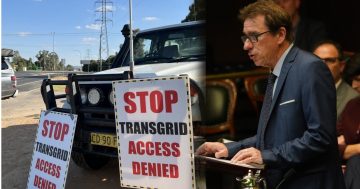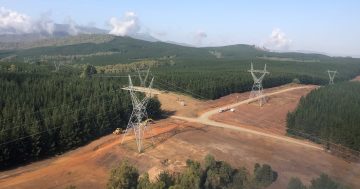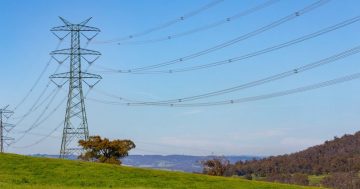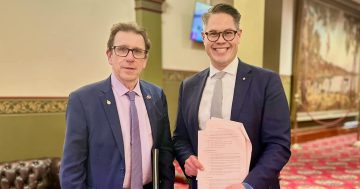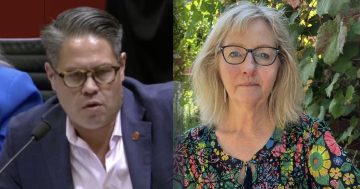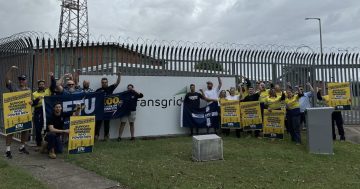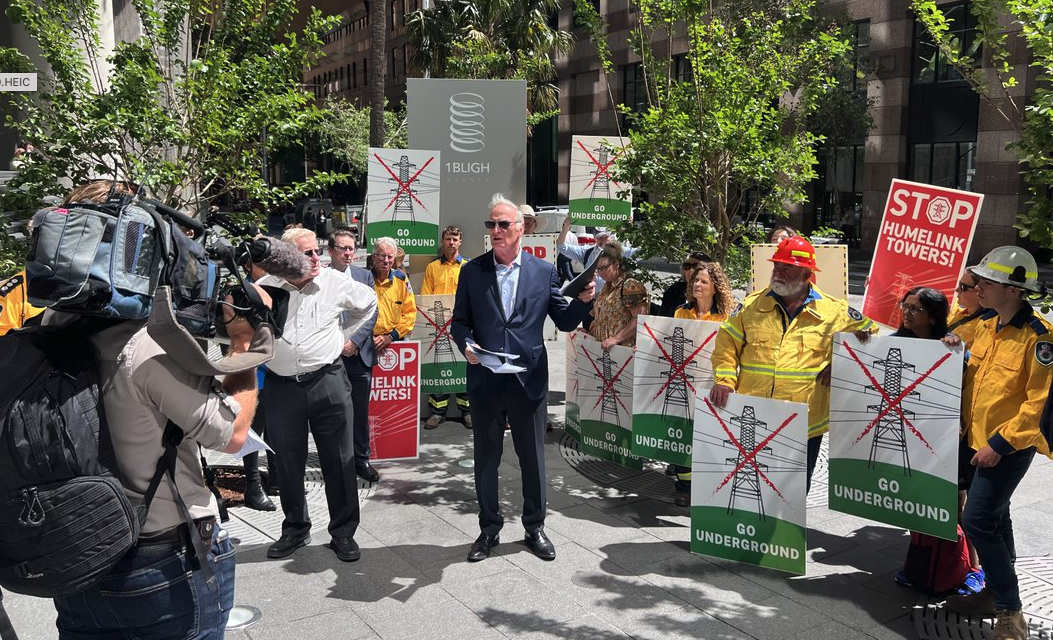
Stop, Rethink HumeLink spokesperson Michael Katz explains the findings of a new report on undergrounding HumeLink. Photo: Supplied.
Opponents of Transgrid’s multi-billion dollar renewable electricity line across southern NSW have rallied in Sydney to urge the Government and the energy giant to ditch the poles and wires and go underground instead.
Independent NSW MPs Dr Joe McGirr and Helen Dalton joined community groups and volunteer firefighters in Sydney this week to highlight a new report on undergrounding Humelink.
“This report makes a complete nonsense of claims that undergrounding is too expensive and will add significant costs to energy consumers,” said Stop, Rethink HumeLink spokesperson Michael Katz.
“What isn’t in dispute is that the overhead proposal will rip through habitats of endangered species, increases bushfire risks and jeopardise lives and local industries.”
The report by Amplitude Consultants suggests the Government’s approach is based on “flawed economics”, and was delivered by the protestors to the Minister for Climate Change and Energy, Chris Bowen.
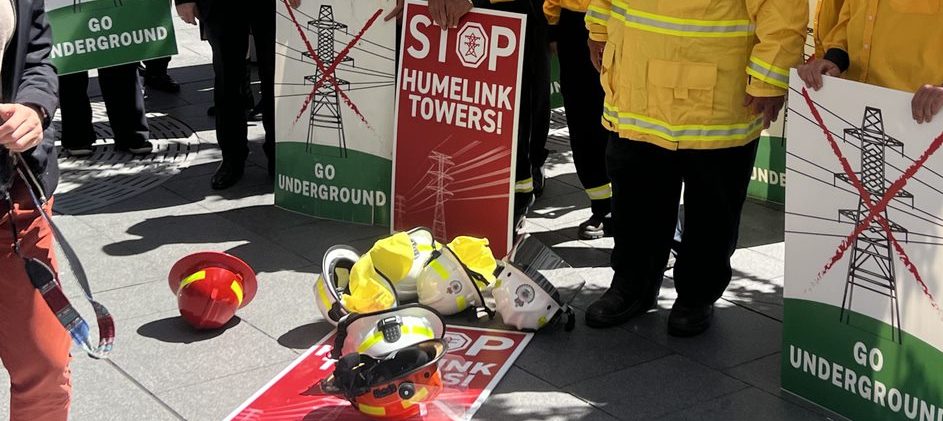
Rural firefighters claim they may be forced to quit if the current Transgrid project goes ahead. Photo: Supplied.
Volunteer firefighters who attended the rally said they would be forced to hang up their hard hats if the current overhead plan went ahead.
“We are going to resign for safety’s sake,” said Rural Fire Service captain Bill Kingwill as firefighters piled up their helmets outside the minister’s office.
“We are at risk from the arcing of the high voltage power lines and a 500 kV is twice as likely as a 330 kV to arc in the smoke.”
The report rejects Transgrid’s estimate that taking the 360-kilometre transmission project underground would cost more than $11 billion, claiming that it could be done for $7.3 billion.
The current overhead option is expected to cost $5 billion.
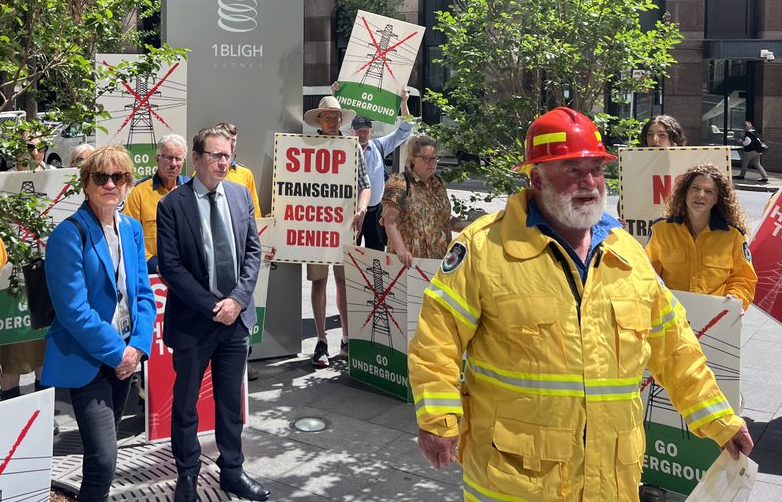
Helen Dalton and Dr Joe McGirr joined protestors in presenting a new report to Federal Energy Minister Chris Bowen. Photo: Supplied.
Dr Joe McGirr described the report as “an absolute breakthrough”.
“Undergrounding transmission isn’t just a viable option, it’s the best option,” he said.
“It won’t be 10 times the cost. It won’t even be twice the cost. It will be a mere one and a half times the cost.
“It really is time now to seriously consider undergrounding as an option for the future of this country and the 10s of 1000s of kilometres of transmission lines that are going to scar our beautiful rural landscapes.”
The report also challenges concerns that undergrounding would cause delays, and estimates that an underground HumeLink could be completed by August 2029 and align with the timing needed to connect Snowy 2.0 to the grid.
Helen Dalton reflected on Germany’s transition to underground technology and said it was time to adopt world’s best practice.
“As farmers we’re always looking for efficiencies, and this overheading of powerlines will put us back in the dark ages and I can see that the cost will be put onto us,” she said.
“I’m urging Transgrid and the Government to come to the table and talk about this with us so that we can get on with the job.
“Best practice for the best community in the best country.”
Rethink HumeLink is planning for a community-based National Crisis Summit in Canberra in November to call for state and federal governments to take immediate action.







